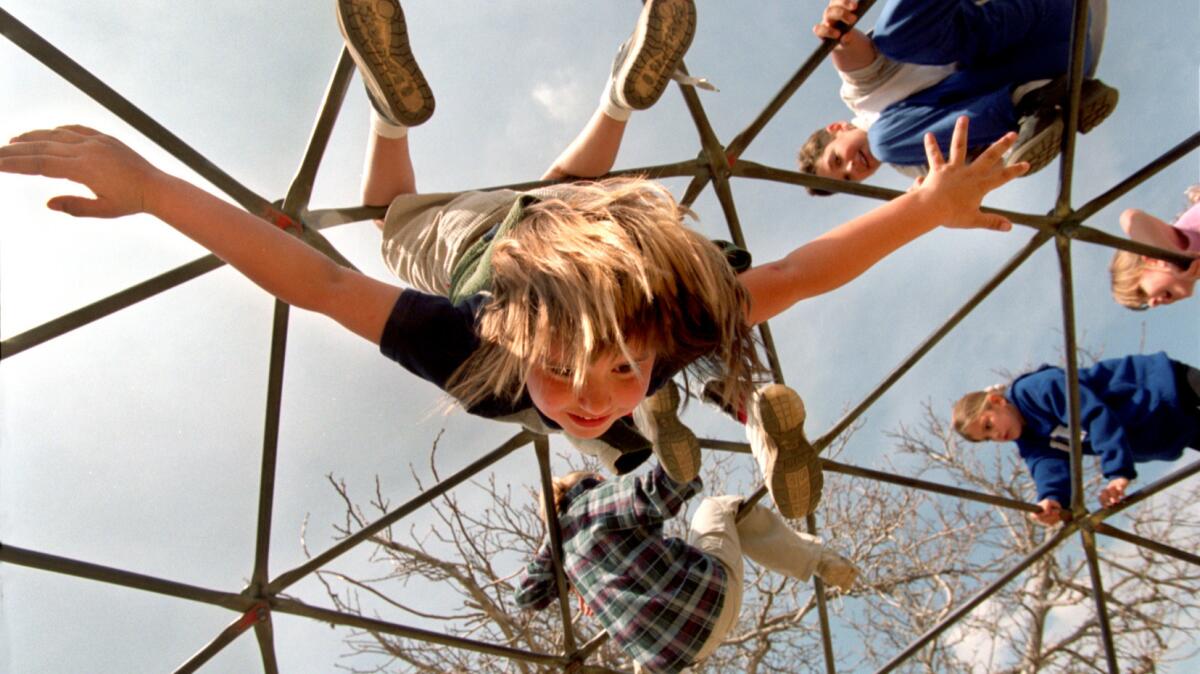To do better in school, kids should exercise their bodies as well as their brains, experts say

- Share via
Attention parents: If you’d like to see your kids do better in school, have them close their books, set down their pencils and go outside to play.
That’s the latest advice from an international group of experts who studied the value of exercise in school-age kids.
“Physical activity before, during and after school promotes scholastic performance in children and youth,” according to a new consensus statement published Monday in the British Journal of Sports Medicine.
What’s more, exercise and fitness “are beneficial to brain structure, brain function and cognition,” the experts concluded.
See the most-read stories in Science this hour »
The group of 24 researchers from the United States, Canada and Europe came up with this advice after poring over the latest scientific and medical research on the benefits of exercise in kids ages 6 to 18. The experts, from a variety of disciplines, gathered in Copenhagen this spring to assess the value of all kinds of exercise, including recess and physical education classes in school, organized youth sports leagues and old-fashioned outdoor play.
Though all of these activities take kids out of the classroom or away from their homework, they are still a good investment in academic achievement, the consensus statement says. Even a single break for moderate-intensity exercise can boost “brain function, cognition and scholastic performance,” according to the statement.
The benefits also extend to the psychological and social realm, the experts wrote. Exercise will clear their heads, help them make friends, and help them feel more confident around their peers as well as coaches and other adults.
Any kind of exercise is valuable, but goal-oriented activities provide extra benefits, the experts found. Among other things, they promote “life skills” and “core values” like respect and social responsibility, they wrote in the statement.
Not surprisingly, exercise – whether it comes in the form of a tennis lesson, soccer tournament, family hike or bike ride to school – also boosts physical health. Kids with good heart and lung function and strong muscles are less likely to develop chronic conditions like diabetes and coronary artery disease as adults, the experts noted.
All of these are reasons why schools and communities should make sure kids have access to playgrounds, parks and bike lanes, the statement says.
And if you’re worried that your son or daughter will lose precious minutes polishing up a book report or cramming for a final, you can relax.
“Time taken away from academic lessons in favour of physical activity has been shown to not come at the cost of scholastic performance,” the experts wrote.
Follow me on Twitter @LATkarenkaplan and “like” Los Angeles Times Science & Health on Facebook.
MORE IN SCIENCE
Lead exposure soared after kids in Flint started drinking tainted water, CDC says
Super-sticky saliva helps chameleons catch huge prey, scientists say
British scientists are freaking out about ‘Brexit’ too




